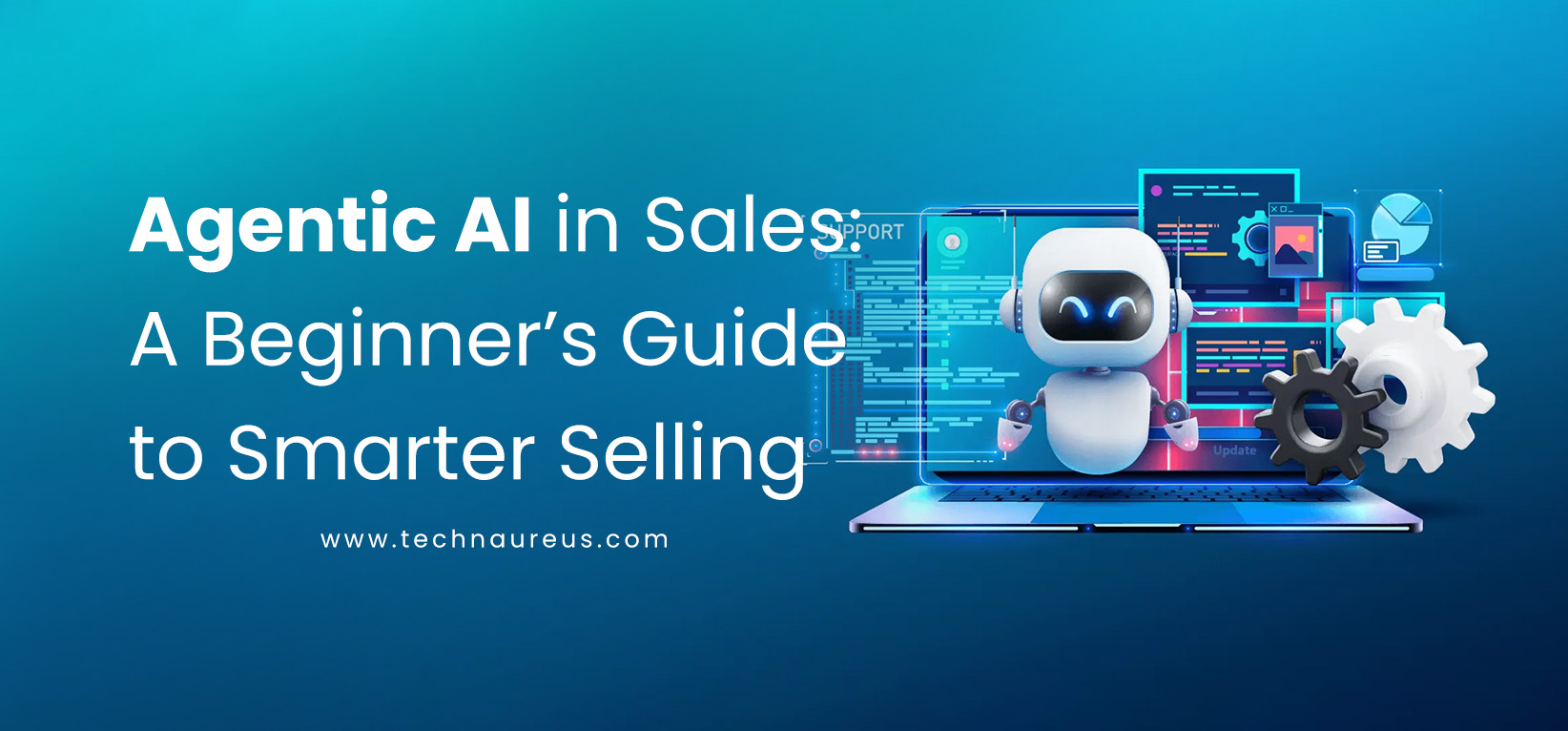Sanjay AjaySept. 16, 2025
Imagine this: Your sales team spends hours each week chasing leads that go nowhere. Calls are missed, follow-ups are delayed, and great opportunities slip through the cracks. Now, what if you had an assistant that worked 24/7, analyzing prospects, suggesting the right moves, and even automating repetitive tasks?
That’s where agentic AI in sales comes in. Unlike basic automation tools, agentic AI acts like a smart teammate. It doesn’t just follow instructions — it learns, adapts, and makes decisions to help sales reps focus on what they do best: building relationships and closing deals.
Agentic AI refers to artificial intelligence systems that operate independently, making decisions based on goals rather than just rules. In sales, this means the AI doesn’t just send generic emails or update a CRM. Instead, it:
Think of it as having a digital sales rep who never sleeps, never forgets, and continuously improves.
Learn more about how agentic AI works in our in-depth guide.
Agentic AI plays a crucial role at every stage of the sales funnel:
The sales world has changed dramatically. Buyers do more research online, expect personalized communication, and have less patience for generic pitches. Here’s how agentic AI helps modern sales teams stay ahead:
Agentic AI can sift through hundreds of leads and highlight the ones most likely to convert, saving your team time and effort.
Instead of sending the same email to everyone, AI can tailor messages based on each prospect’s behavior and preferences.
By analyzing past wins and losses, agentic AI offers insights on what strategies work best for different customer segments.
From logging calls to updating the CRM, AI takes care of tedious admin work so reps can focus on selling.
Implementing agentic AI can have a transformative impact on your sales team:
Getting started with agentic AI doesn’t have to be overwhelming. Here are a few simple steps to make it work for your team:
List out repetitive tasks that take up most of your team’s day, such as data entry or lead scoring.
Look for AI-powered tools that fit your sales process. Popular options include:
Begin with one or two tasks. For example, automate follow-up reminders before moving on to more complex workflows.
AI isn’t perfect. Regularly check its recommendations and provide feedback so it can learn and improve.
Here are some practical examples of how companies use agentic AI:
While agentic AI offers many benefits, there are some challenges to keep in mind:
Many sales teams hesitate to adopt AI because of misconceptions. Let’s clear up a few:
Myth 1: AI will replace sales reps.
Reality: AI supports reps by handling repetitive tasks, not replacing human relationships.
Myth 2: It’s too expensive for small businesses.
Reality: Many affordable, scalable AI tools are available today.
Myth 3: AI requires technical expertise to use.
Reality: Most modern sales AI tools are user-friendly and integrate with common CRMs.
Agentic AI in sales is more than just a trend — it’s becoming a must-have for teams that want to stay competitive. By automating repetitive tasks, personalizing outreach, and providing smarter insights, AI frees up your team to focus on closing deals and building meaningful customer relationships.
How do you see AI fitting into your sales process? Share your thoughts or experiences in the comments!
Agentic AI acts independently, setting and working toward goals instead of just following simple rules or commands.
Yes! Many tools are affordable and easy to set up, even for small teams.
No, AI supports salespeople by handling repetitive tasks and providing insights, but human connection remains key.
Popular options include Salesforce Einstein, Gong, and HubSpot’s AI features.
Start small by automating simple tasks like follow-up reminders, then expand as you see results.

1